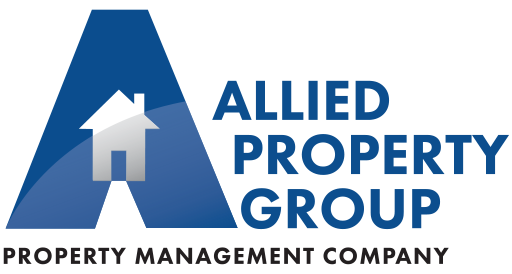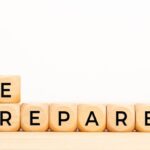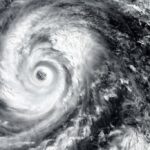By: Ana Sanchez Rivero, CAM
A lot of focus is normally given to hurricane preparation. It is important to prepare and make sure that your family has as much information as it needs in case a hurricane does hit. But what do you do during a hurricane? And what happens after? This week’s podcast of Community Association Matters answers these important questions.
According to the Official Broward County Hurricane Preparedness Guide, when the storm arrives everyone should stay in a safe room. They identify a safe room as an interior room in your home without windows or doors. Good examples of this are closets, bathrooms or small storage rooms. Try to select a room that is central so that it is easy for everyone to access it. Clear out the room before the storm hits so that you are not doing that in the middle of the storm. Never open windows and doors; you must keep the wind out of your house. As Broward County’s guide states, “buildings do not fail because of unequal pressures inside and outside…[Opening windows and doors] allows wind to enter the building and increases the risk of building failure.”
I have often wondered what I should say to my small children should a hurricane hit us. It is recommended that you comfort your children and reassure them that they are safe. You should talk to them and explain what a hurricane is. Broward County has a link on their website that can offer help to parents as to what to discuss with your child and how to keep the conversation age appropriate. Encourage them to express their feelings. They can do this thru a variety of ways, by talking, drawing, or even playing. In today’s day and age where even young children have access to the internet, try to keep them from media reports. This can add unnecessary levels of stress, especially on a young mind.
I remember that after Hurricane Andrew my dad and I ventured outside of our house to assess the damage. I was in shock. We got lost right away as many of the street signs and traffic lights had been knocked down or blown away. So right after a storm you should stay in doors, unless it is an emergency. There will be downed trees and power lines. Some of those power lines may be live so it is important to steer clear. Report sparking power lines to 911.
Avoid standing water. In many cases, you will not be able to see what is underneath and you can step on a live wire, become injured with a sharp object, or get bitten by a snake. It is important to keep in mind that this water is contaminated and anything it touches can also become contaminated. Do not drink from the faucet until government officials have given the all clear. If your home has water damage, contact a licensed electrician and have them inspect your home before turning on the power.
If your home receives natural gas, you should evacuate immediately if you see a broken gas line or smell natural gas. Ventilate the area by opening windows and doors. Do not light matches, turn on any light switches or use the telephone. Immediately call your gas service provider. You should contact your gas provider before the hurricane hits for instructions on what to do.
Most hurricanes hit during warm weather and mosquitos can become a problem. You should take precautions by staying indoors at dawn and dusk; wear long sleeve shirts and pants to protect your skin; and use repellent containing deets, except for children under two months. You should also remove any standing water as soon as you can.
After a storm, you should document the damages to your property. You can best do that by taking pictures or videos of your home after the storm. Whenever possible it is better if you can document your personal belongings before the storm. This way you can document what you own and the condition of your personal property. If there is a storm surge, some of these items can float away. Having taken pictures before can help show your insurance carrier that you had the item. You should then report the damages to your insurance representatives.
Now if you are like me, you have become spoiled by air conditioning and the thought of spending one night without a/c is enough to drive you nuts! After Hurricane Wilma, I remember all of my family and friends going out and buying generators but we learned that generators bring forth a completely new set of problems. Broward’s hurricane guide provides some important safety tips when it comes to generators. If you install a permanent generator, you must pull the necessary permits and it must be installed by a licensed electrician. Use the generator in accordance to the instructions provided by the manufacturer. Portable generators should be placed outside in a well ventilated area. Never place a generator inside a home – this includes garages, basements or crawl spaces.
Remember that we cannot see or smell carbon monoxide and it is deadly. If you begin to feel sick, dizzy or weak while using a generator – immediately get outside to fresh air and seek medical attention. If it is not feasible for you to have a generator it is important to stay cool. Keep an eye out for the symptoms of heat exhaustion.
Staying tuned is very important during a hurricane and can sometimes be very difficult so be patient. Expect delays in cell phone coverage. Use the phone for necessary calls only. Sometimes text messages get through when voice calls will not. Remember that you can also use your car charger to charge your phone.
Inevitably, after a storm there will be debris. Debris removal varies from city to city and from association to association. Priority will be given to debris that is blocking roads and that pose an immediate safety issue. It may take a days or even weeks for all of the debris to be picked up.
If your home is damaged and you wish to begin making repairs it is important to remember to check your governing documents to see what you can and cannot do without association approval. You can also contact your association’s management company for additional information. Regardless, as we discussed in the previous podcast, it is important that you hire licensed contractors to do repairs and that you get permits from your local municipalities. You can check online to confirm that the contractor has a license and verify that he has insurance. Ask for references and verify those references. Check with the local building department to see if there are any pending complaints against the contractors.
There are several organizations that offer assistance after a hurricane. For more information, visit your local municipality’s website for additional information. I encourage you to listen to this week’s episode of Community Association Matters in its entirety as it offers additional information.



